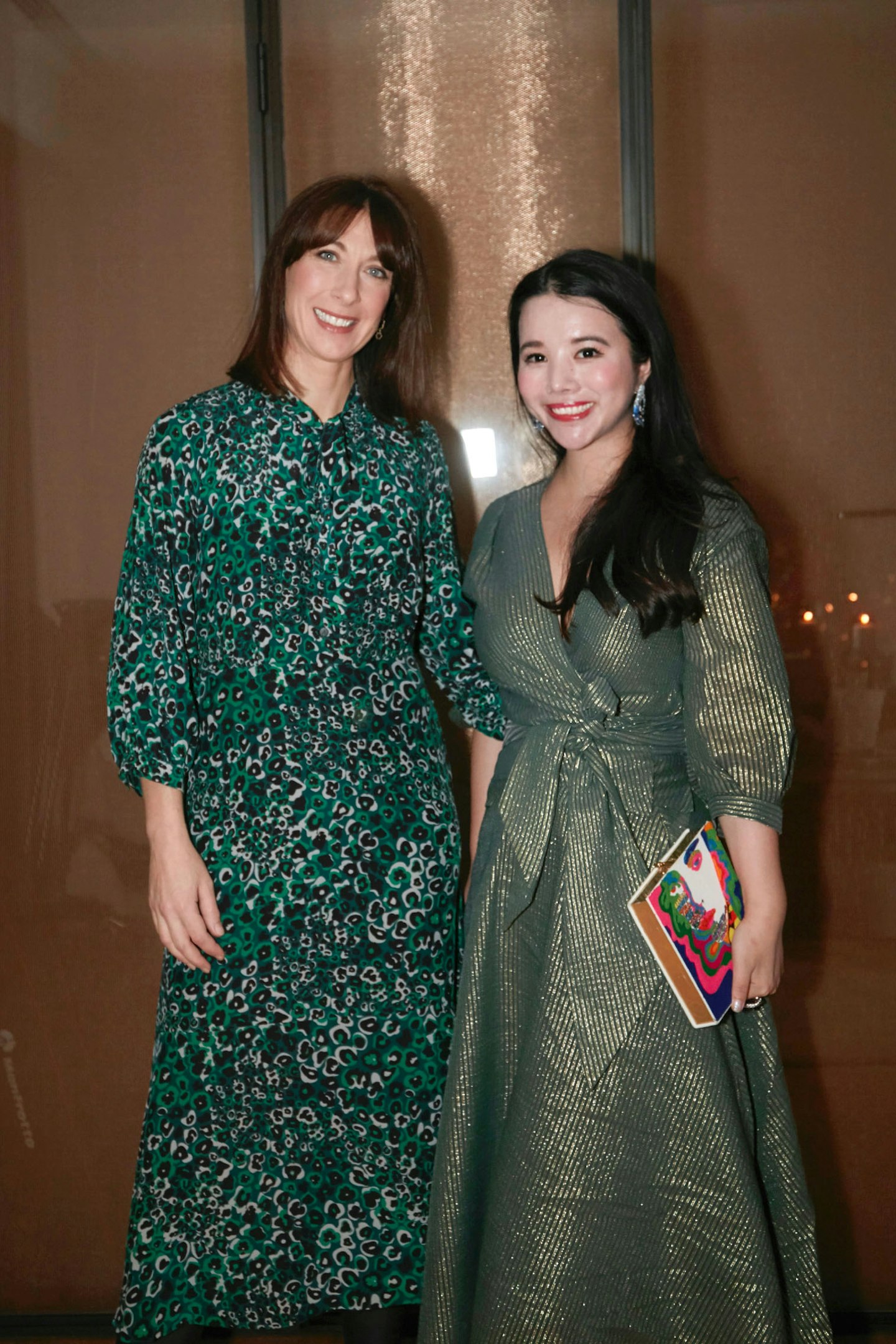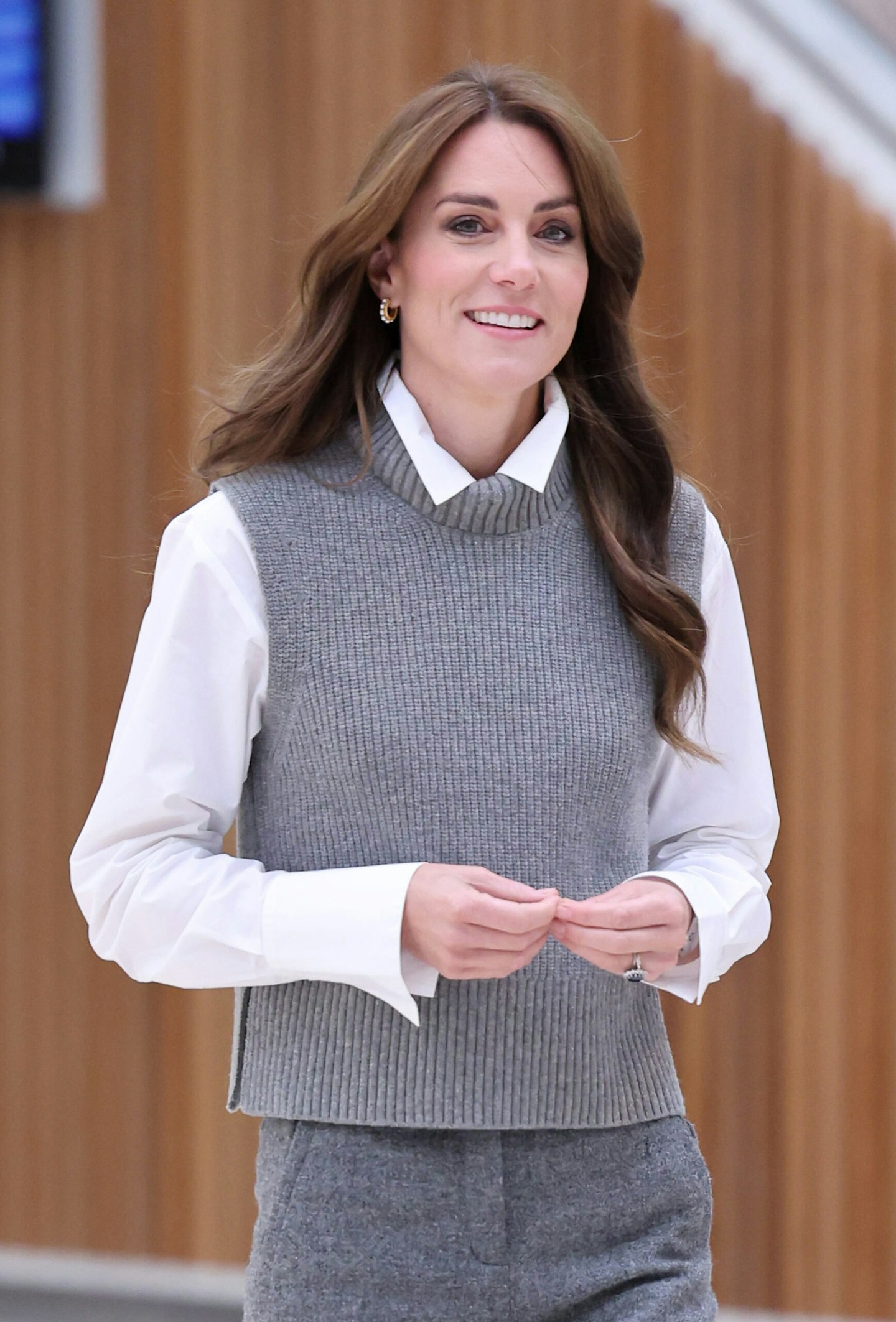When Samantha Cameron founded her fashion label, Cefinn, in 2017, it had a bright future ahead. Worn by everyone from Kate Middleton to Michelle Obama, Cefinn's philosophy was 'effortless confidence.'
Eight years later, the company is preparing to close; this week, in a statement posted on the Cefinn Instagram account, Samantha Cameron said she has begun the process of winding up the brand. She confirmed that the upcoming winter collection launching later this month will be Cefinn’s last and wrote that the decision to shut Cefinn 'was not a decision I have taken lightly, especially as we have recently seen strong trading figures.'
She continued: 'But, as a small company navigating the turbulence in the fashion wholesale sector, ongoing cost pressures and international trading restrictions, I have found it increasingly difficult to be certain that Cefinn can achieve the level of growth needed to reach a stable and profitable position,' adding 'I hope the Cefinn brand continues to live in the wardrobes of Cefinn fans for many seasons to come.'

The news came just months after Cefinn opened a pop-up store on The Kings Road in June 2025. At the time, Samantha said she was 'thrilled' to be opening the flagship store, calling it a 'fantastic opportunity for Cefinn.’
Samantha launched the brand three months after her husband, David Cameron's resignation as Prime Minister in 2016, after she took a pattern-cutting course during his second term in office. She previously worked as the Creative Director at Smythson of Bond Street, from 1997 until May 2010, taking on a part-time creative consultancy role there after David became prime minister.
Her mission of Cefinn was to design 'luxury fashion tailored for modern, busy woman.' When the brand launched, prices ranged from £110 for a black T-shirt to £390 for a coat. After the pandemic, Samantha gradually expanded her collections to include more causal pieces. One of the brand's bestsellers was the Sophia skirt, which had to be restocked several times since its launch in autumn 2023.
In a 2024 interview with The Guardian, Samantha explained that the public scrutiny she experienced while David was in office made her 'quite obsessed' with reliable clothes. 'I care a lot about things that travel well, and details like poppers to keep your bra strap in place, and stitching down the buttons of a shirt dress and putting a zip in the side so that nothing gapes,' she told the outlet. The brand counted Kate Middleton among its fans, with the Duchess sporting a Petra leopard-print dress back in 2023, and a sweater vest in 2024.

But losses steadily mounted in the company, which was not immune to the impact of Covid and Brexit on small businesses. In a 2021 interview on Women's Hour, Samantha said her brand was finding post-Brexit trading with the EU 'challenging and difficult.'
In 2022, Cefinn released figures that showed cumulative losses amounting to nearly £2.6 million, as of October 2021. Cameron told The Guardian in 2024 that 'supply chain disruption continues to cause problems. There have been many moments when we have had to adapt and pivot to survive. This is not an easy time for many of our customers, and inflation has really impacted us as a business.'
Cefinn received a further blow after the collapse of Matches Fashion, which was put into administration by Frasers Group last year. Cefinn was stocked by Matches, and was reportedly among the designers owed £100,000 by the company. The end of Cefinn follows other closures of independent fashion brands. In May 2024, Susie Cave's Vampire's Wife stopped trading and in the same year, Roksanda Ilinčić announced that she had sold her label, Roksanda, citing 'recent volatile market conditions.'
Laura Weir, CEO of The British Fashion Council, tells Grazia that Samantha Cameron built a 'label that spoke to a professional woman and earned a strong following.' She called the brand's closure 'a sobering reminder of just how tough the UK fashion landscape is right now.'
'The BFC continues to engage with the UK government to advocate for greater support for fashion businesses, from improving access to finance for expanding brands to tackling issues around business rates and VAT-Free shopping,' Weir said. 'That a brand like Cefinn cannot withstand the current headwinds, including rising costs, fragile supply chains, the collapse of wholesale partners, and shifting retail dynamics, highlights how severe the pressures are on independent British fashion firms and underscores the need for increased support.'
For now, Cefinn plans to keep the brand's two London stores and website open temporarily for Autumn 2025 - and the brand currently has up to 40% off summer items in the sale online.
Alice Hall is the Staff Writer at Grazia UK. She was previously a Junior Features Writer for The Daily Telegraph. At Grazia, she writes news and features about pop culture, dating, health, politics and interiors.
